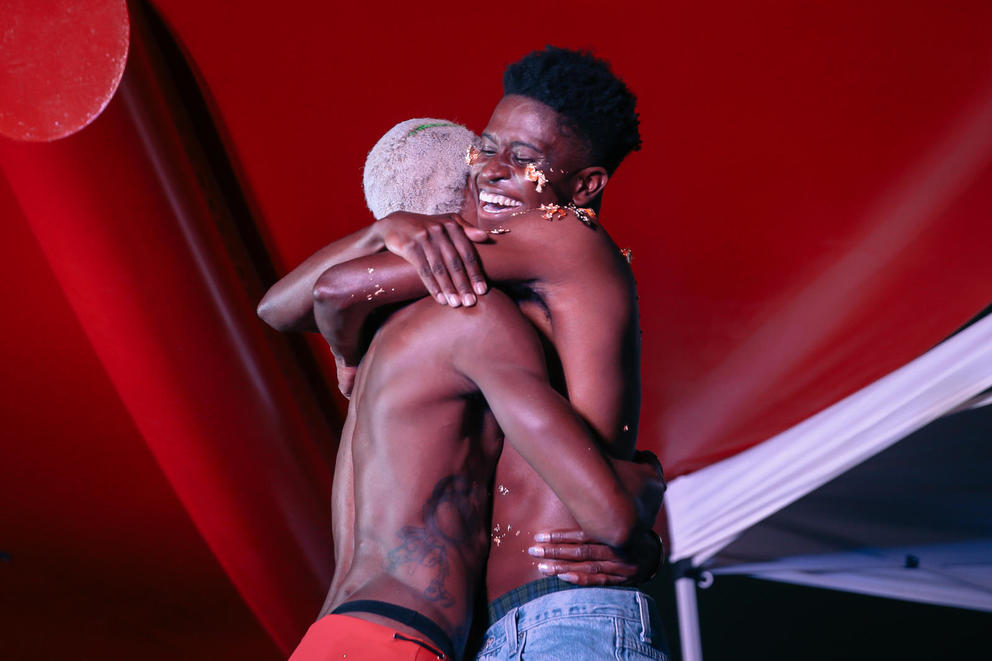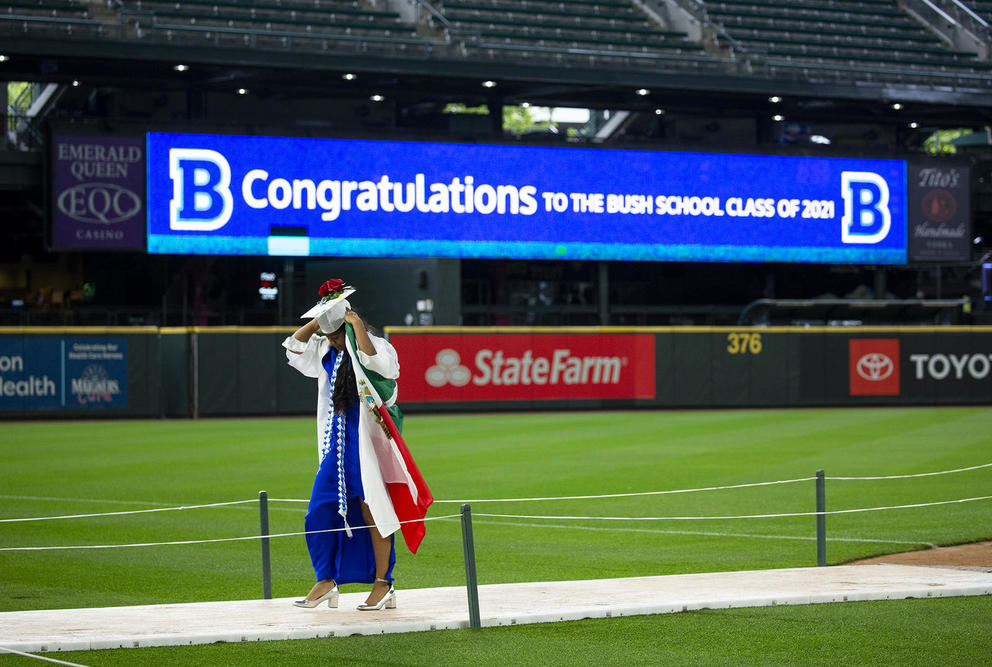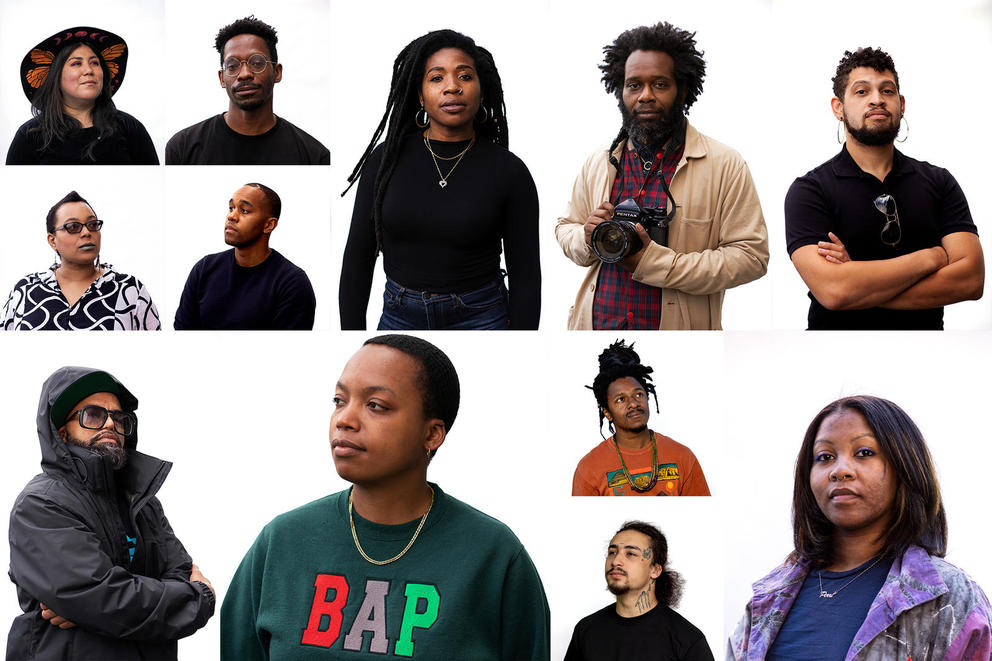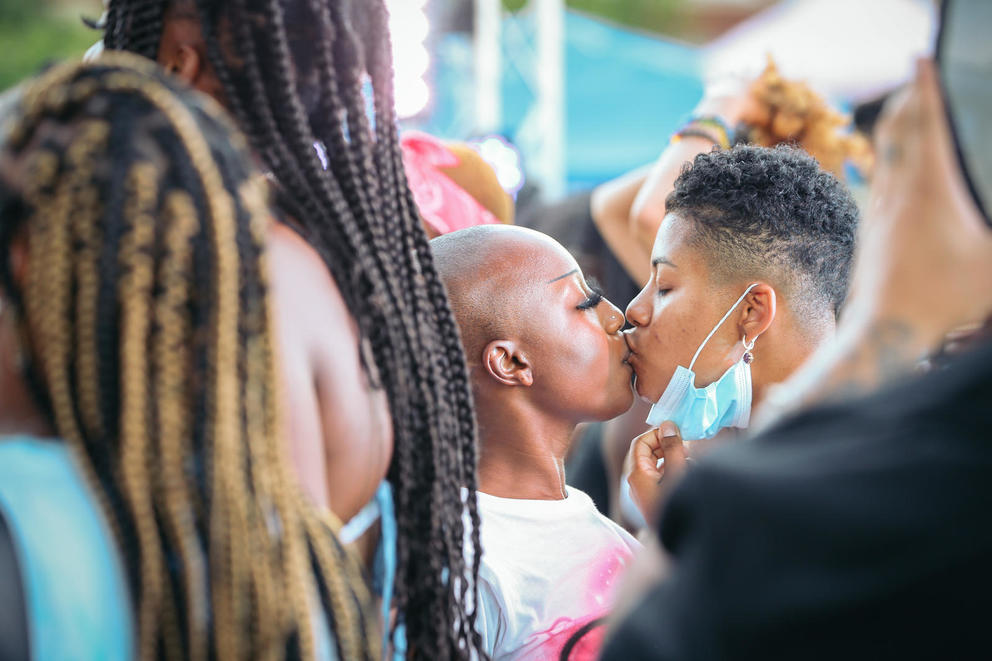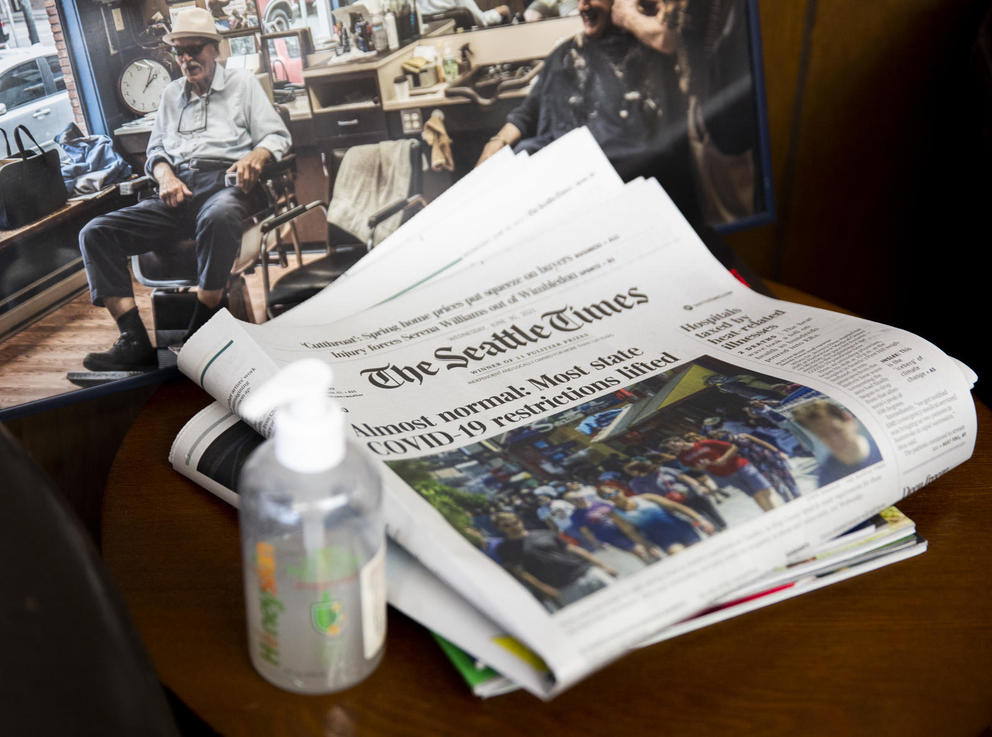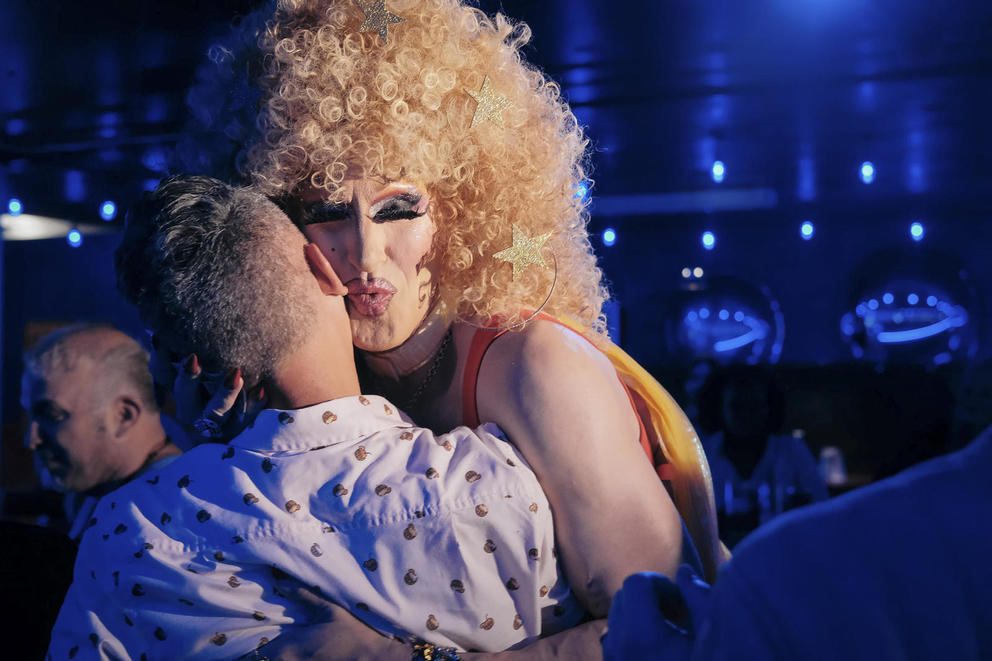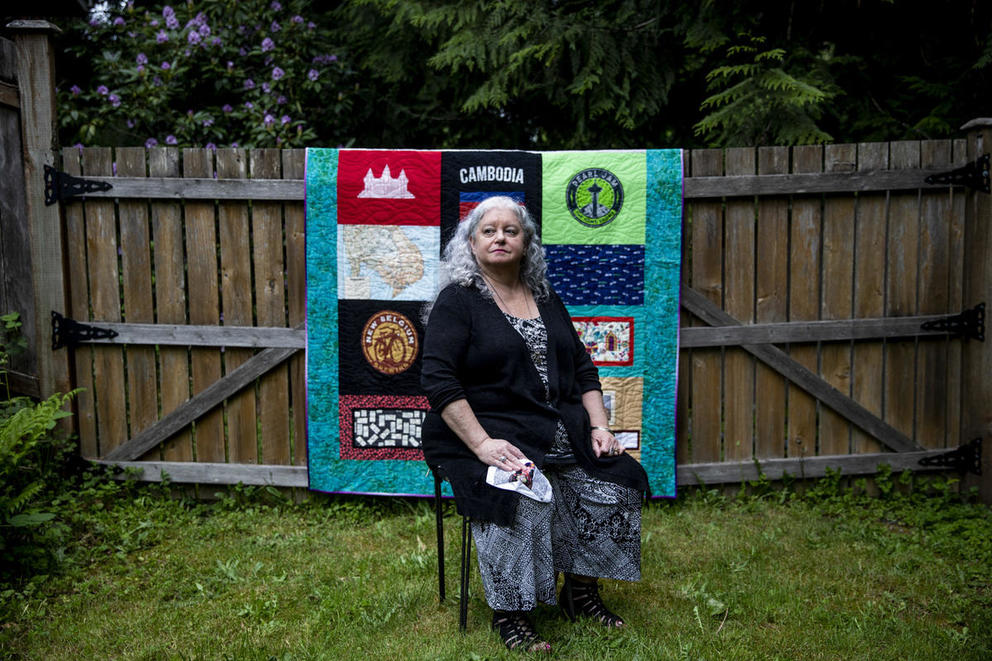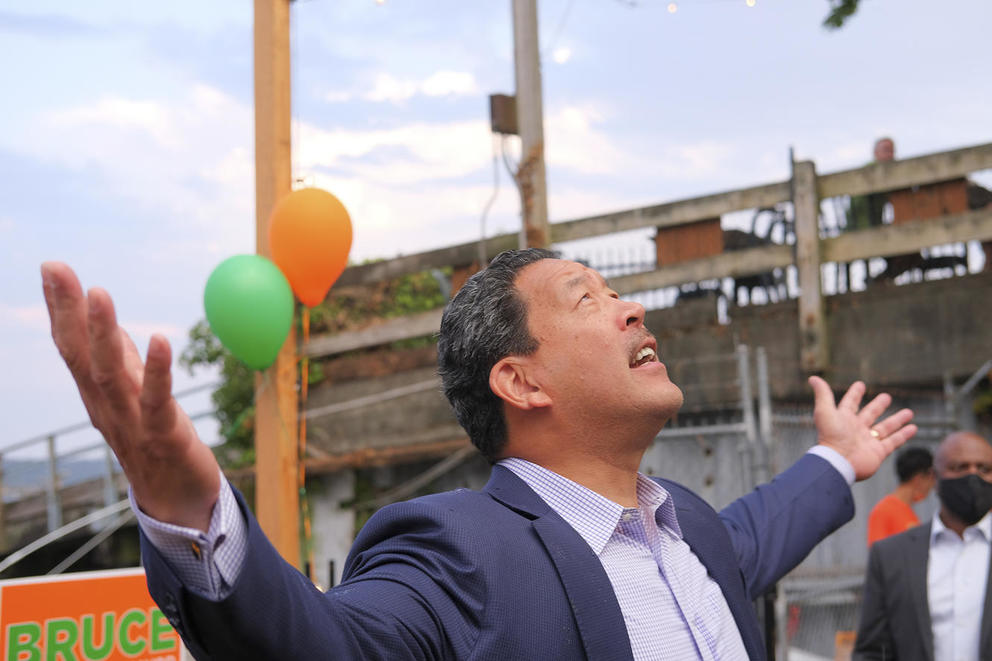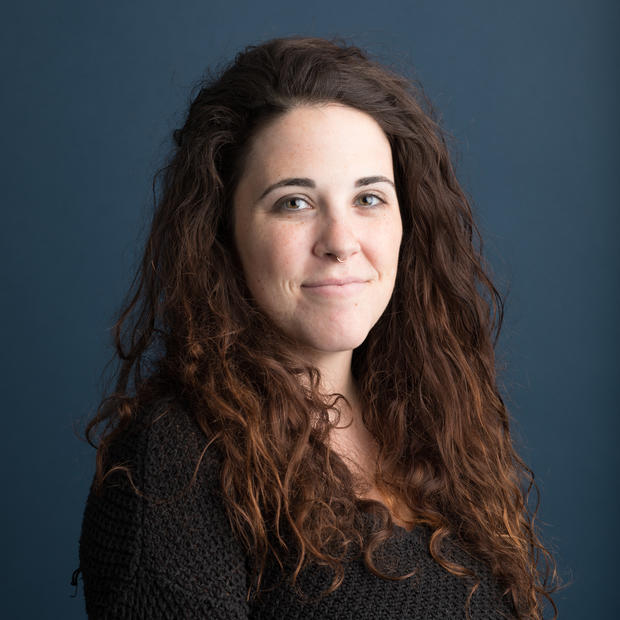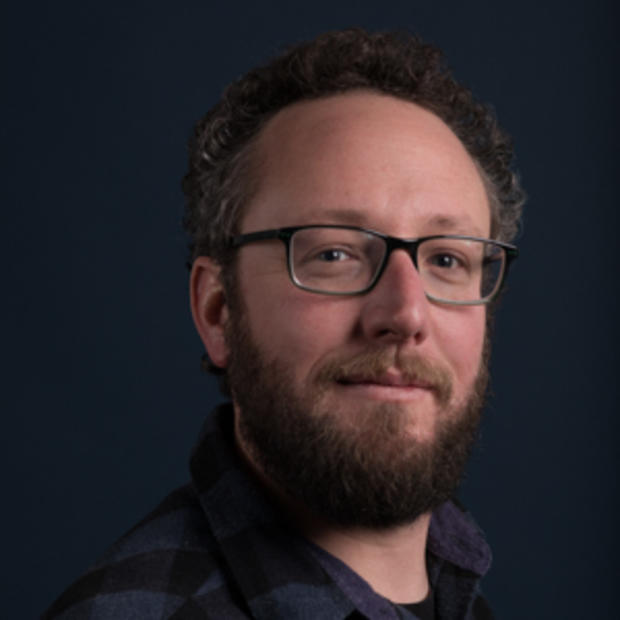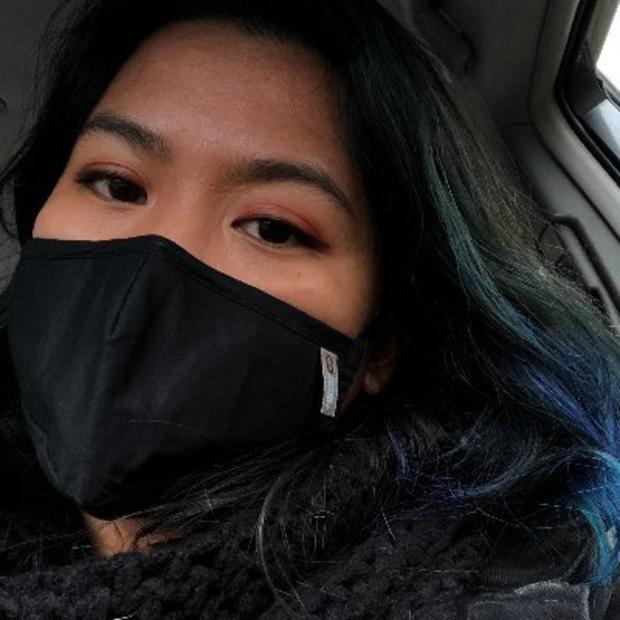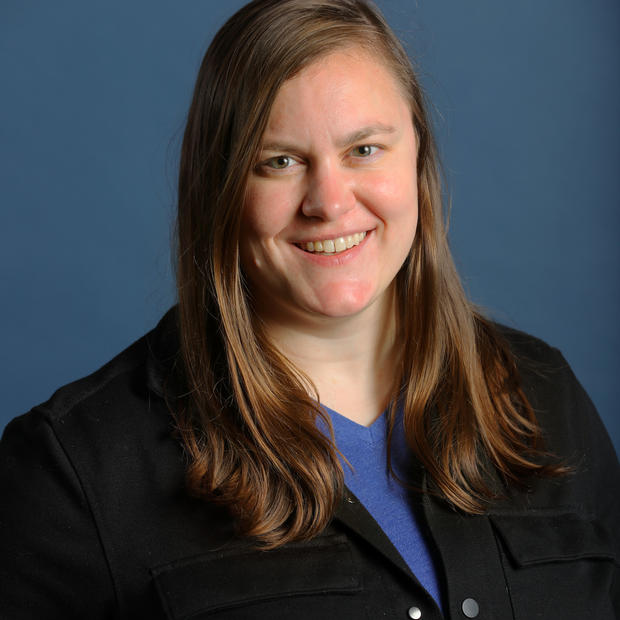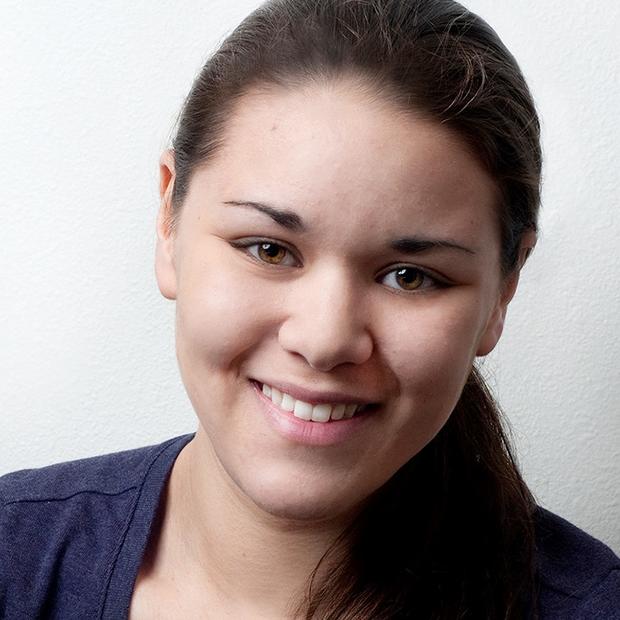During graduation season in June, photojournalist Lindsey Wasson and education reporter Venice Buhain followed Donaji Torres-Marquez as she graduated from The Bush School. Buhain highlighted the resilience of Torres-Marquez and other graduating high school seniors like her, who had to finish school during the height of the pandemic.
Torres-Marquez said that despite the challenges of this past year, she felt a sense of hope. “I think it would be how persevering people are,” she said. “I feel very optimistic.”
Earlier in the summer, our former Indigenous affairs reporter, Manola Secaira, and I followed Cassandra Miles (Ojibwe), a doula who offers free services for Native people. In King County, the infant and maternal mortality rates are highest among Native people. Additional challenges mounted for these expectant mothers during the pandemic, but Miles was there every step of the way.
“The goal of my program is to prevent Native women from dying,” says Camie Goldhammer (Sisseton-Wahpeton), the program’s lead. “Carrying a Native baby does not put a person at risk, right? It’s the racism and the abuse and the trauma that they experience that put them at risk.”
And culturally-specific care, Goldhammer says, is part of that: “It’s really about reclaiming these practices and bringing them back to the communities so that we as a whole can heal from the traumas of colonialism.”
A year after the Black Lives Matter mural was completed in Capitol Hill’s CHOP zone, photojournalist Matt M. McKnight and arts reporter Margo Vansynghel followed up with the artists who created it. Sixteen artists came together to paint the historic art piece and, upon completion, several of them formed the Vivid Matter Collective.
With a mobile photo studio in the back of his van, complete with lights and backdrops, McKnight bounced around Seattle visiting each of the artists and making their portraits — sometimes even setting up on apartment roofs or busy street corners.
Throughout the summer, Crosscut photojournalists have traveled to every corner of our region, keeping us informed, documenting our city’s history and reminding us of our shared humanity.
Here are some of the most noteworthy photos from the summer:
Mauricio and Patty Velarde, left and second from left, visiting from Monterey County, California, admire the view of downtown Seattle from the Space Needle on June 30, 2021. “We were here yesterday and it’s like night and day,” Mauricio Velarde says. “This morning waking up, it’s like a light switch went on, with people congregating outside.” Patty Velarde adds, “It feels like we’re living again. It was a hard year.” (Jovelle Tamayo for Crosscut)
Donaji Torres-Marquez adjusts her cap as she holds a Mexican flag while walking off the field after receiving her diploma during The Bush School's commencement ceremony at T-Mobile Park in Seattle, Washington, Sunday, June 13, 2021. Torres-Marquez plans to attend the University of Chicago in the fall and is interested in studying biology or psychology. (Lindsey Wasson for Crosscut)
L. Patrice Bell sings “Lift Every Voice and Sing,” also known as the Black national anthem, during a recent recording. “NAAM’s had a whirlwind of a year,” she says. “And we’re still finding ways to inspire others while we also inspire and encourage ourselves. We really want people to know that, regardless of what you’re going through, there’s hope.” (David Ryder for Crosscut)
Xeng Thao takes a short nap while Mai Lee prepares flowers for patrons inside Bao Yang Garden’s vendor booth at the Columbia City Farmers Market in Seattle on June 30, 2021. “All the restrictions have been lifted and we’re pretty happy,” says Lee. “But we’re tired. We operate six days per week throughout the region. Some days we’re so busy that we don’t have time to eat.” (Matt M. McKnight/Crosscut)
Cassandra Miles (Ojibwe) greets Starr Warner (Diné) and her baby Eros after he wakes up from a nap on March 4, 2021. Miles works as a doula and offers free services for Native people. In King County, the infant and maternal mortality rates are highest among Native people. “The goal of my program is to prevent Native women from dying,” says Camie Goldhammer (Sisseton-Wahpeton), the program’s lead. (Dorothy Edwards/Crosscut)
Drag queen Dolly Madison hugs an audience member as she performs during "Dolly and the DJ," the first drag show hosted by The Lumber Yard Bar since early 2020, when the bar was forced to close due to the pandemic. The White Center bar was able to open at limited capacity a year ago, and co-owner Nathan Adams says it was able to stay in business thanks to its community of loyal regulars and securing federal Payroll Protection Program loans, June 19, 2021. (Genna Martin for Crosscut)
Elaine Simons was the foster mother of Jesse Sarey, who was killed by an Auburn police officer on May 31, 2019, when Sarey was 26 years old. The quilt was made in honor of Sarey by Lija Staks, Tuna Chatterjee, Gwen Marceline and Liz Marmion of the Social Justice Sewing Academy. The officer who shot and killed Sarey, Jeffrey Nelson, was charged with second-degree murder and first-degree assault. “With the trial coming up, it’s important to bring Jesse back up,” Simons says. “I don’t think people in Washington even know there is a murder trial happening.” (Dorothy Edwards/Crosscut)
Terri Claw (Navajo) gets a hug from Clarissa Antone (Yakama Nation/Blackfeet/Squamish/Cowichan) after a Talking Circle at the Mother Nation offices on June 10, 2021, in Seattle. Mother Nation supports its Native American participants through healing services, advocacy, mentorship and homeless prevention. (David Ryder for Crosscut)
Venus Aoki, 24, has been trying to get access to gender-affirming surgery since she came to Washington five years ago after leaving Mexico because of discrimination she faced as a transgender woman. Her insurance company has refused to cover the doctor-prescribed treatments for her. Even though there is a state law that bans insurance companies from discriminating based on gender identity, companies have still been able to deny coverage of gender-affirming treatments by labeling them as cosmetic procedures, even though they are prescribed by a doctor and are medically necessary. A new bill recently passed in the Washington state Legislature will require insurance companies to cover these treatments. (Dorothy Edwards/Crosscut)
This story was first published in Crosscut's Weekly newsletter. Want to hear more from journalists like Dorothy Edwards? Sign up for the newsletter, below.
Get the best stories of the week
This weekly newsletter dives deeper into one story and how it was reported, along with curating the best stories of the week.

